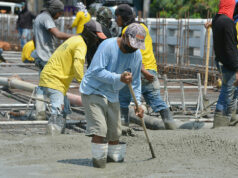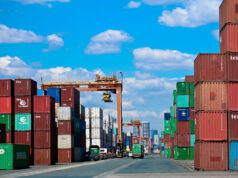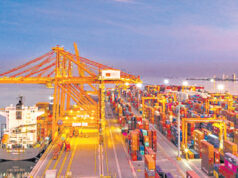Cayetano calls for public-works stimulus to offset epidemic
SPEAKER Alan Peter S. Cayetano said economic managers must fast-track infrastructure projects to help cushion the impact of the coronavirus epidemic on the economy, particularly on the tourism sector.
“’Yung appeal ko sa economic team… habang ‘yung uncertainty ng Covid-19 nandiyan, at habang maaapektuhan ang international tourism, agahan niyo ang pag-release at pagpapagawa ng infra projects (My appeal to the economic team is that while the uncertainty generated by Covid-19 is affecting international tourism is that it accelerate the funding release and construction of infrastructure projects),” Mr. Cayetano told reporters on Feb. 24, referring to the formal name of the coronavirus epdemic originating in China.
He added that the construction projects lined up under the “Build, Build, Build” program as well as other government programs can “create jobs in various parts of the country and boost local economies.
He believes that these can help absorb the possible “temporary displacement” in tourism-related jobs during this “uncertain period” as authorities struggle to contain the epidemic, with measures including travel bans.
“Number one, so ‘yung ibang tourism-related jobs, pwedeng tumulong sa construction. Number two, para tamaan niyo ‘yung March, April, May na tag-init na mas maraming magagawa. (the first point is that displaced tourism workers can be redeployed to the construction sector. Second point, we need to maximize the peak construction months of March, April and May,” Mr. Cayetano said.
He urged local government units to ensure their national funding is released promptly by the national government to prevent delay in project implementation.
“God willing, after the second half of this year, wala nang Covid-19 or under control na, so dagsa na naman ang tourists. So, in the meantime, itong first two quarters, sana “Build, Build, Build” tayo (By the second half maybe Covid-19 will dissipate or be under control, which will mean tourism could return. In the meantime, we should let “Build, Build, Build” carry the load),” he said. — Genshen L. Espedido



